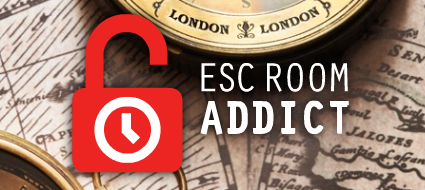by Journal 29 (website)
Languages: EN
All you need to play is a pencil, an internet connection, and a curious mind.
Overall rating
based on ratings from 8 users
combined with 1 pro review
Your review
Player reviews







The third book from the author of Journal 29 brings more of what we've come to expect from any recent puzzle book:- a somewhat vague storyline that gives an excuse to present backwards writing, a few mazes, spot-the-difference, shape and logic puzzles, reading numbers as text.... each of which resolves to a single word solution. Type that solution into a website and you get another word back, which might be used as the basis for a later puzzle. So, if you like that sort of thing, great. The puzzles are mostly fine, but for me I have to admit they're getting a bit tired now, and I never felt wowed by any of the content (and there was at least one puzzle that, despite having got the answer correct, I cannot see how it was meant to be clued). If you've played J29/J29R/Trip1907/Codex Engimatum you will have definitely encountered many of these puzzles before.
To give The Cypher Files credit, it does have a decent attempt at providing a narrative to tie the puzzles together. *But* the vast majority of the exposition takes place on the website in which you enter the answers rather than in the book itself.
And that brings me onto my biggest gripe: which is that you cannot enjoy this as a standalone book. You *need* to have constant internet connection to be able to verify answers and progress in the story. Indeed, many of the puzzles themselves require you to access an internet resource (such as a 360' photo) to find an answer word. So I can't enjoy reading it in the bath, on holiday in a remote cottage, or just when you want to do some puzzles that don't require screen time, say. Yet, at the same time, it feels like many of the puzzles have been limited to try to fit into the paperback medium, which is why they are often restricted to fairly generic paper-and-pen puzzle mechanics.
I feel that if the author wanted to make a puzzle *book*, they should exploit the benefits of the book format - make it standalone, portable, and use paper-and-pen puzzles (though you can still make use of the fact that the player can scribble notes, tear pages, see through from one page to the facing page, whatever).
Or, if they wanted to make an online puzzle game, go nuts and exploit the full range of puzzle types that opens up, in the way that some recent ARGs like Society or Curiosities or The Detective Society have.
But this feels like a compromise that fails to deliver the benefits of its paper medium, nor the opportunities of it being inextricably dependent on the internet.



